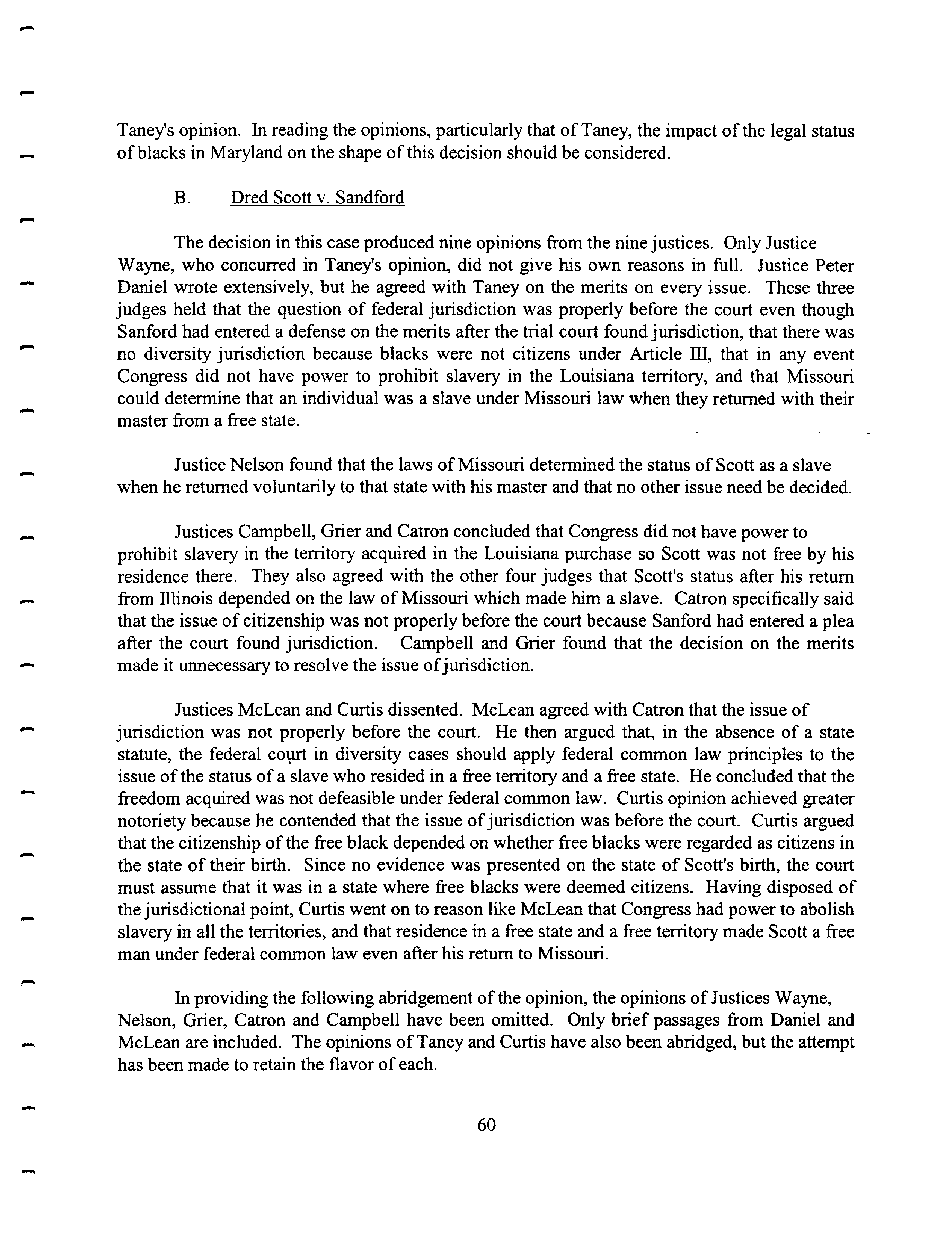|
Taney's opinion, hi reading the opinions, particularly that of Taney, the impact of the legal status
of blacks in Maryland on the shape of this decision should be considered.
B. Dred Scott v. Sandford
The decision in this case produced nine opinions from the nine justices. Only Justice
Wayne, who concurred in Taney's opinion, did not give his own reasons in full. Justice Peter
Daniel wrote extensively, but he agreed with Taney on the merits on every issue. These three
judges held that the question of federal jurisdiction was properly before the court even though
Sanford had entered a defense on the merits after the trial court found jurisdiction, that there was
no diversity jurisdiction because blacks were not citizens under Article III, that in any event
Congress did not have power to prohibit slavery in the Louisiana territory, and that Missouri
could determine that an individual was a slave under Missouri law when they returned with their
master from a free state.
Justice Nelson found that the laws of Missouri determined the status of Scott as a slave
when he returned voluntarily to that state with his master and that no other issue need be decided.
Justices Campbell, Grier and Catron concluded that Congress did not have power to
prohibit slavery in the territory acquired in the Louisiana purchase so Scott was not free by his
residence there. They also agreed with the other four judges that Scott's status after his return
from Illinois depended on the law of Missouri which made him a slave. Catron specifically said
that the issue of citizenship was not properly before the court because Sanford had entered a plea
after the court found jurisdiction. Campbell and Grier found that the decision on the merits
made it unnecessary to resolve the issue of jurisdiction.
Justices McLean and Curtis dissented. McLean agreed with Catron that the issue of
jurisdiction was not properly before the court. He then argued that, in the absence of a state
statute, the federal court in diversity cases should apply federal common law principles to the
issue of the status of a slave who resided in a free territory and a free state. He concluded that the
freedom acquired was not defeasible under federal common law. Curtis opinion achieved greater
notoriety because he contended that the issue of jurisdiction was before the court. Curtis argued
that the citizenship of the free black depended on whether free blacks were regarded as citizens in
the state of their birth. Since no evidence was presented on the state of Scott's birth, the court
must assume that it was in a state where free blacks were deemed citizens. Having disposed of
the jurisdictional point, Curtis went on to reason like McLean that Congress had power to abolish
slavery in all the territories, and that residence in a free state and a free territory made Scott a free
man under federal common law even after his return to Missouri.
hi providing the following abridgement of the opinion, the opinions of Justices Wayne,
Nelson, Grier, Catron and Campbell have been omitted. Only brief passages from Daniel and
McLean are included. The opinions of Taney and Curtis have also been abridged, but the attempt
has been made to retain the flavor of each.
60
�
|

